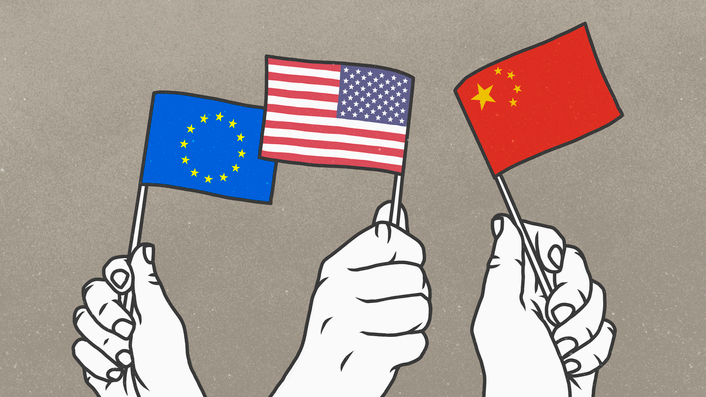China has established itself as a rising power in just a few decades. It has established itself as a powerful country with global interests and the ability to act on them. China’s influence can now be felt in every corner of the globe, from the South Pacific to South and Central Asia, the wider Middle East, Latin America, and beyond.
As the world’s second-largest economy, China’s economic growth has been a major factor in its rise to power. Its Belts and Road Initiative, which aims to connect Asia with Europe and Africa through infrastructure projects, has solidified its global clout. Furthermore, China’s growing military capabilities and diplomatic influence have boosted its global presence.
However, China’s growing economic and military power, combined with its authoritarian regime and disregard for human rights, poses a significant challenge to Western democratic values of freedom, democracy, and human rights.
Many argue that China has embraced capitalism, that it does not export its ideology, and that it does not pose an existential threat to liberal democracy and the Western way of life.[1] However, ideology has always been a major driving force in conflicts.
Westerners find it difficult to understand how Chinese communists believe democracy is bad because it breeds diversity and chaos, yet the West embraces militarism and believes power can solve any problem even though, despite having few internal constraints.
Western countries must find ways to protect and promote their ideals while engaging China constructively. Because if the ideological rivalry escalates, the Chinese Communist Party (CCP) could become an existential threat. As the CCP becomes more radical and the country’s wealth grows, it is possible to transform China into a true communist country and promote global revolution.
As China grows and expands its economic influence, it is challenging Western economies’ dominance and reshaping the global economic landscape. This shift has significant implications for China-West trade, investment, and geopolitical relations.
In recent years, trade tensions between China and the United States of America have risen, with ex-President Donald Trump imposing tax on Chinese imports and China retaliating with tariffs of its own.
Furthermore, China’s expanding economy has raised concerns about the country’s ability to manipulate global markets and currencies. China has the world’s second largest economy (estimated to be around US$18.321 trillion in 2022) and has become the world’s largest holder of foreign reserves, and its large presence in global markets may allow it to influence prices and exchange rates in its favour. Some are concerned that China will use its financial clout to expand its geopolitical influence around the world. The rivalry between the United States and China is likely to remain a major factor in the international system in the coming years.
The main threat is the shift in the balance of power that could threaten the economic stability of Western countries. Due to this, the West may need to take steps to reduce its dependence on China’s economy to mitigate any potential negative impacts on their own market.
Despite this, China already holds significant amounts of US debt, which could lead to an economic imbalance, resulting in; higher prices, weaker currency, decreased jobs and security and investment opportunities.
Furthermore, an increase in Chinese influence may result in higher taxes on Western imports, resulting in higher prices for Western goods. As a result, completely severing ties with China may be impossible.
Instead of relying on Chinese imports, Western countries could diversify their trade partners and invest in domestic production. Furthermore, the West could work to improve its own economic and technological capabilities in order to compete more effectively with China in the global market.
Increased Chinese influence may result in increased propaganda distribution within Western nations. This means that not only will politics change, but so will public opinion, as people become more susceptible to Chinese ideas and rhetoric.
Ultimately, the key is to strike a balance between cooperation and competition with China while safeguarding the west’s own interests and values. It is important for western countries to carefully consider their options and make strategic decisions to ensure their economic stability in the long run.
Reference:
- Lungu, A. (2021). The U.S.-China Clash Is About Ideology After All. [online] Foreign Policy. Available at: https://foreignpolicy.com/2021/04/06/us-china-ideology-communism-capitalism/ [Accessed 28 Mar. 2023].


